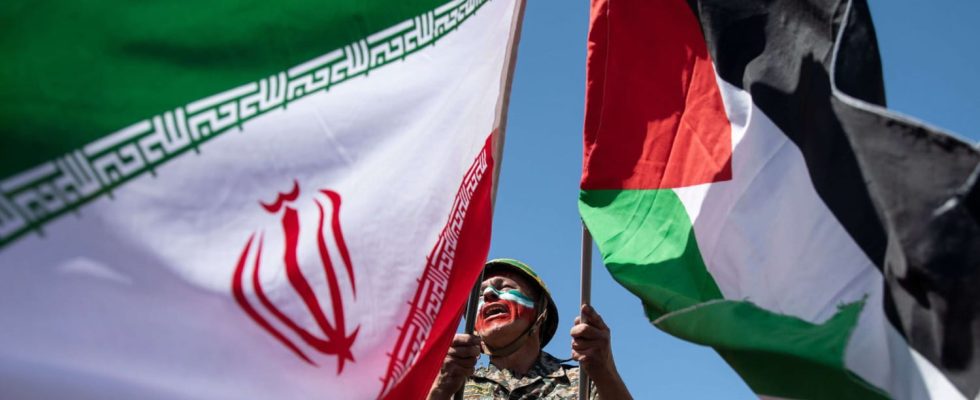The threats of Iranian retaliation hovering over Israel have been taken very seriously by the American and French governments, which are working this Friday, April 12, to avoid the escalation of tensions in the region and ensure the safety of civilians.
The alert level is at its maximum this Friday, April 12 in the Middle East. While the UNITED STATES have decided to restrict the movements of their diplomats in the region, France invites its nationals to “imperatively refrain” from traveling in Iran, in Israel, Lebanon and Palestine. Paris also requested the “return of the families of diplomatic agents from Tehran”, indicates The worldadding that the German airline Lufthansa is extending the suspension of its flights to and from Tehran, due to these tensions.
The day before, the agency Bloomberg revealed that Tehran could carry out a “massive attack” on the Jewish state in the coming days. It is “no longer a question of knowing ‘if’, but ‘when'”, specified an anonymous source to the American media. This Friday, the United States, which had “warned Iran” and affirmed its “unwavering” support for Israel, sent the general of the American army in charge of the Middle East, Michael Erik Kurilla, to Tel Aviv , in order to discuss with the country’s military leaders “security threats in the region”.
The threat comes in response to the deadly strike carried out by Israel in early April against the Iranian consulate in Damascus, Syria, which left sixteen people dead, including seven members of the Revolutionary Guard Corps. The Iranian supreme leader, Ayatollah Ali Khamenei, had also assured that the Jewish state would be “punished”.
Requests for de-escalation
According to the media Axios, the head of United States Central Command (Centcom) in charge of operations in the Middle East, General Erik Kurilla, went to Israel on Thursday, April 11 to take stock of the situation with Defense Minister Yoav Gallant and define the response to a possible Iranian offensive against Israel. Faced with an attack that would be unprecedented, demands for de-escalation are intensifying. The foreign ministers of Saudi Arabia, the United Arab Emirates, Iraq and Qatar have reportedly spoken on the phone with their Iranian counterpart to calm tensions in the region.
According to Bloomberg, faced with this possible scenario, “Israel’s Western allies have been informed that Israeli government and military installations could be targeted, but that civilian installations should not be.” Emergency plans are being developed. Israel reportedly expects “this attack to take place before launching a new ground offensive against Hamas in Rafah.”
US support for Israel
Information confirmed by Joe Biden himself, who declared during a joint press conference at the White House that Iran “threatens to launch a significant attack against Israel”. The American president thus reaffirmed his support for Israel. “As I told Prime Minister Benjamin Netanyahu, our commitment to Israel’s security, in the face of these threats from Iran and its allies, is unwavering. […] We will do everything we can to protect Israel’s security,” he said. In a sign of the high tensions in the region, the German airline Lufthansa has suspended its flights to Tehran “because of the current situation in Middle East”.
